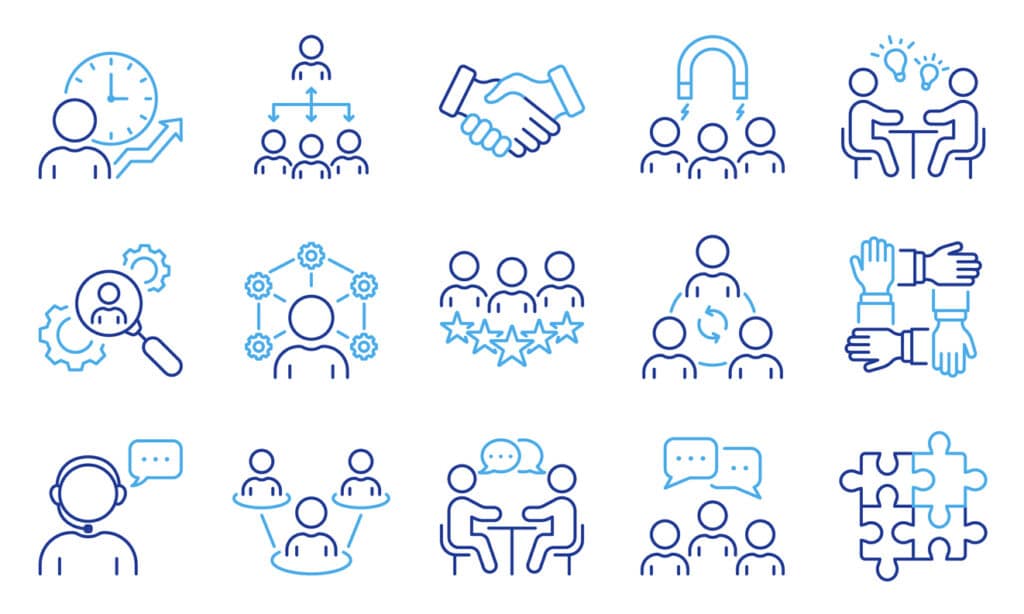In the realm of Human Resources, the advent of HR Analytics has marked a revolutionary shift towards data-driven decision-making. As organizations strive to optimize their HR functions, the application of analytics in human resources—encompassing everything from recruitment and retention to performance management—has emerged as a critical tool for achieving a competitive advantage. This blog post provides an overview of HR Analytics and offers practical tips for effectively implementing these strategies within your organization.
What is "HR Analytics?"
HR Analytics, at its core, involves the systematic analysis of people data and HR processes to improve organizational outcomes. By leveraging statistical methods, data modeling, and predictive analytics, HR professionals can gain deep insights into workforce dynamics, identify trends, and forecast future HR needs. This evidence-based approach enables organizations to make informed decisions that can lead to enhanced employee engagement, productivity, and overall business performance.
Key Areas Impacted by HR Analytics
- Recruitment and Selection: Identifying the characteristics of high-performing employees to improve hiring processes.
- Employee Retention: Analyzing turnover data to develop targeted retention strategies.
- Performance Management: Assessing performance data to optimize appraisal and feedback mechanisms.
- Learning and Development: Tailoring training programs based on the assessment of skills gaps and learning outcomes.
- Workforce Planning: Predicting future workforce requirements to align HR strategy with business objectives.

Implementing HR Analytics: Tips and Strategies
1. Start with Clear Objectives
Before diving into data analysis, it’s crucial to define what you aim to achieve with HR Analytics. Whether it’s reducing employee turnover, improving the quality of hires, or enhancing employee engagement, having clear objectives will guide your analytical efforts and ensure relevance to your business goals.
2. Ensure Data Quality
The accuracy of your HR Analytics initiatives depends on the quality of the data you collect. Ensure that your data is reliable, consistent, and comprehensive. This might involve cleaning existing data, implementing new data collection methods, or integrating disparate data sources for a holistic view.
3. Use the Right Tools
Several tools and software solutions are available to support HR Analytics, ranging from HR information systems (HRIS) to specialized analytics platforms. Select tools that align with your objectives, are user-friendly, and can scale with your organization’s needs.
4. Develop Analytical Skills within HR
While specialized data analysts can provide valuable insights, it’s also important for HR professionals to develop a basic understanding of data analysis principles. Consider offering training or workshops to build analytical capabilities within your HR team.
5. Act on Insights
The true value of HR Analytics lies in taking action based on the insights gained. Ensure that findings from data analysis are translated into concrete HR strategies and initiatives. Regularly monitor the impact of these actions and adjust your approach as needed.
6. Prioritize Privacy and Ethical Considerations
When dealing with employee data, it’s paramount to maintain confidentiality and comply with data protection regulations. Be transparent about how data is collected, used, and stored, and ensure that your analytics practices respect employee privacy and ethical standards.
In Conclusion
HR Analytics offers a powerful means to transform HR practices and contribute to organizational success. By understanding the fundamentals of HR Analytics and applying these best practices, organizations can unlock actionable insights, enhance decision-making, and drive strategic HR initiatives. Remember, the journey toward data-driven HR is a continuous process of learning, adaptation, and improvement.






